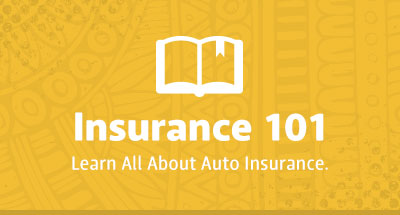Insurance for Drivers with Accidents or Violations

A driver who’s had traffic violations may be known as a “high-risk driver,” but they still have options when it comes to auto insurance. Speeding tickets, DUIs, or accidents may have a serious impact on your car insurance rates. However, by taking proactive steps, high-risk drivers can get insurance and work towards lowering their rates in the long run.
Illinois Vehicle Insurance Agency, LLC (Illinois Vehicle) works with drivers with varying types of driving records and experience to help them find auto insurance coverage that fits their budget. We serve the state of Illinois within the wider Chicagoland area, and we work with different insurance providers that offer various policy options.
How accidents and violations affect your insurance
If a driver has traffic accidents or violations as part of their driving history, an insurance company may consider them a “high-risk driver.” That is, a driver who may be more likely to file a claim with the insurance company.
While you can still get auto insurance, being a high-risk driver may affect your insurance policy in different ways, including:
- Higher insurance premiums: Even a minor accident can cause your auto insurance premiums to increase. This hike in insurance prices can range from 17% to 50% or more, depending on your insurance provider. More severe infractions, such as DUIs, can double your premiums. This is because the Illinois Vehicle Code has strict rules around these infractions, considering some of them misdemeanors.
- Policy non-renewal: If your driving record continues to worsen, some insurance providers may choose not to renew your policy at the end of the contracted term. Non-renewals don’t happen as often as increases in premium rates, but they are possible for drivers with multiple claims or serious traffic violations.
- Limited coverage options: With a less-than perfect driving record, your options for insurance policies you can buy may be limited. Some insurance companies may not offer policies for drivers considered high-risk. In these cases, you may have to work with insurers who offer policies for high-risk drivers.
What counts as a violation?
Every state has its own traffic laws and regulations. At the time of this publishing, Illinois traffic infractions fall in these categories:
Minor Violations
These are less serious offenses, usually infractions against local laws or codes. They may come with fines or points to the driver’s license, but may often be cleared when the driver completes a traffic school program. Examples are:
- Driving faster than the posted speed limit
- Unauthorized parking
- Running a red light
- Not stopping at a “Stop” sign
Major Violations
Major violations are more serious offenses. These may be considered misdemeanors in the state of Illinois. Depending on the offense, they may come with fines or jail time. Examples include:
- DUI (Driving under the influence)
- Reckless driving
- Driving with a suspended license
If these violations seriously injure people or personal property or happen repeatedly, they may be considered felonies. Examples include:
- Repeated DUIs
- Hit-and-runs
At-Fault Accidents
In Illinois, if a driver is considered more than 50% at-fault for the accident, they will be liable to pay for at least some damage caused to another person. An at-fault driver may see an increase in their insurance premiums. Some carriers may offer you limited policy options if they consider you a high-risk driver.
Any of these infractions may affect your insurance premiums to different degrees. It’s important to understand the financial impact they have so that you can take precautions when you go out on the road.
SR-22
Illinois drivers convicted of serious violations are required to carry an SR-22 certificate. The SR-22 shows that you have the minimum liability insurance required. After you purchase a policy, the insurance company will help you file an SR-22 form.
Finding insurance after a violation or accident
While this may seem daunting, high-risk drivers still have options. Several insurers, including ones that Illinois Vehicle works with, offer policies to high-risk drivers. Here are some steps you can take to find an auto insurance policy:
- Compare quotes: Rates will depend on each insurance company’s offerings. As a high-risk driver, you can still shop around and ask for different quotes. You may also use an online comparison tool or work with an Illinois Vehicle agent who can help you compare premium prices.
- Take a defensive driver course: In Illinois, you can take a Driver Education course after getting permission from the court that issued your traffic citation. After taking a course from an approved provider, you can send proof of completion to the court.
- Focus on a clean record going forward: Traffic violations may drop off your record after 4 or more years. Keeping a clean driving record going forward can help you eventually lower your auto insurance premiums.
- Consider usage-based insurance: Usage-based insurance, or UBI, is a program in which your insurance provider may offer you rate reductions after you show improved driving habits. The way you drive is measured by a plug-in device or app.
- Consider non-standard insurance: If an insurance company doesn’t cover high-risk drivers, you may be able to work with a non-standard insurance company that has experience working with drivers who have a less-than-perfect driving record.
Get an auto insurance quote for high-risk drivers
If you are a high-risk driver wondering if you have any insurance options available, don’t fret.
Illinois Vehicle works with carriers that have auto insurance plans for high-risk drivers throughout Chicagoland. Call 630-581-4805, visit a nearby store, or get a quote online.
Disclaimer:
This material is for general informational purposes only. Products, services, and discounts referenced herein are not available in all states or in all companies. All statements are subject to the terms, exclusions, and conditions of the applicable policy. In all instances, current policy contract language prevails. Coverage is subject to individual policyholders meeting the insurer's underwriting qualifications and state availability. Other terms, conditions, and exclusions may apply.






